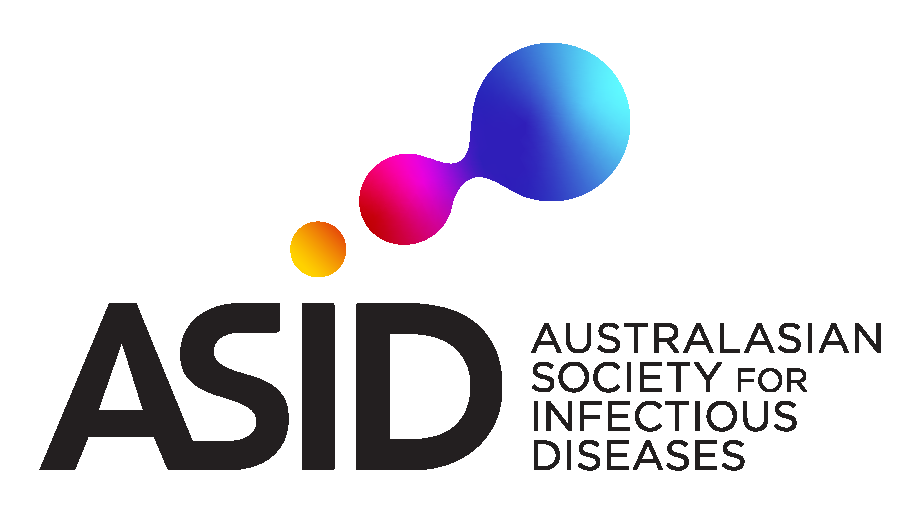Full implementation of the Australian Centre for Disease Control must be a priority to safeguard the health and wellbeing of Australians
“...ASID is encouraging the government to establish a permanent CDC with scope, resourcing and governance to deal with health emergencies, health protection and disease prevention...”
As we anticipate the imminent release of the Commonwealth Government COVID-19 response Inquiry report, the Australasian Society for Infectious Diseases (ASID) calls for bipartisan commitment to the full implementation of an Australian Centre for Disease Control (CDC).
As a leading organisation committed to promoting the prevention and treatment of infectious diseases, ASID believes that the establishment of a robust CDC as an independent expert advisory body to the government, equipped with the trusted technical expertise necessary to guide Australia’s response to existing and emerging infectious disease threats is crucial to safeguard the health and wellbeing of Australians in an increasingly interconnected world.
In recent years, Australia has faced several public health crises, including the COVID-19 pandemic, global outbreaks of novel pathogens such as avian influenza and mpox, and the ongoing threat of antimicrobial resistance (AMR). These challenges underscore the need for a centralised, well-coordinated, and nationally funded body that can enhance our ability to prevent, detect, and respond to infectious diseases threats. The CDC would serve as a hub for national coordination, expert knowledge, and rapid response, ensuring that Australia remains at the forefront of disease control and public health protection. An independent CDC would provide the government with evidence-based advice on disease prevention, control and treatment strategies, ensuring that these efforts are equitably implemented across all regions and populations.
Currently, Australia is one of a handful of OECD countries without a dedicated CDC, placing us at a disadvantage in coordinated national health responses. The COVID-19 pandemic demonstrated the urgent need for a centralised, expert body, as fragmented communication and inconsistent policies hindered effective public health measures.
Reasons for Support:
Strengthening National Preparedness and Response: A fully operational CDC would equip Australia with the resources and capacity to respond swiftly and effectively to both domestic and global health threats. It would centralise public health intelligence, ensuring timely detection and management of infectious disease outbreaks and empowering policymakers and the public to make timely, informed decisions by offering real-time data presented in an accessible and easily understood format. This transparency is crucial for building public trust, especially during crises, as it allows citizens to comprehend the rationale behind health policies and recommendations.
Enhancing Collaboration Across Sectors: The Australian CDC would foster collaboration between levels of governments, healthcare professionals, public health organisations, non-government organisations, research institutions and international agencies. In addition, enhancing intersectoral collaboration across authorities in human health, animal health and the natural environment is essential for addressing complex, multi-jurisdictional and one health issues, such as pandemic preparedness, climate-related health risks, and AMR. Alignment of government responses will prevent duplication of efforts and ensure that all stakeholders work together effectively.
Combating Antimicrobial Resistance (AMR): As infectious disease specialists, ASID recognises AMR as one of the most urgent global health threats. A fully implemented CDC would play a pivotal role in establishing national strategies for surveillance, research, and the judicious use of antimicrobials, ensuring that we address AMR comprehensively and sustainably.
Addressing Health Inequities: The CDC’s national oversight would ensure that vulnerable populations, including First Nations communities, those in rural and remote areas, people with disability, children and young people, and persons from culturally and linguistically diverse backgrounds receive targeted, equitable public health interventions. This is vital to closing the gap in health outcomes and ensuring that every Australian has access to disease prevention and treatment.
Promoting Innovation and Evaluation: A national CDC would assist in the identification of knowledge gaps, promoting innovation and evaluation of novel vaccine development, diagnostics, and therapeutic treatments. By facilitating the integration of public health data and clinical research, the CDC can assist in advancing our understanding of infectious diseases and their societal impacts, enabling more effective and evidence-based interventions.
ASID has long been an advocate for a CDC[1][2][3] and is urging the Australian Government to commit to the full implementation of the CDC, with appropriate resourcing and support. A comprehensive CDC is not only a critical investment in Australia’s health security but also a reflection of our global responsibility in addressing the evolving threat of infectious diseases. We stand ready to collaborate with the Australian CDC and other stakeholders to ensure its success, and we encourage bipartisan support and swift action to bring this vital institution to fruition.
[1] https://asid.net.au/news/centre-for-disease-control
[2] https://asid.net.au/news/asid-submission-into-cdc
[3] https://asid.net.au/news/asid-welcomes-the-australian-governments-commitment-to-establish-a-national-centre-for-disease-control-in-australia
ENDS
Media Contact: Alison Sweeney alison@asid.net.au or 0425 221 155.

